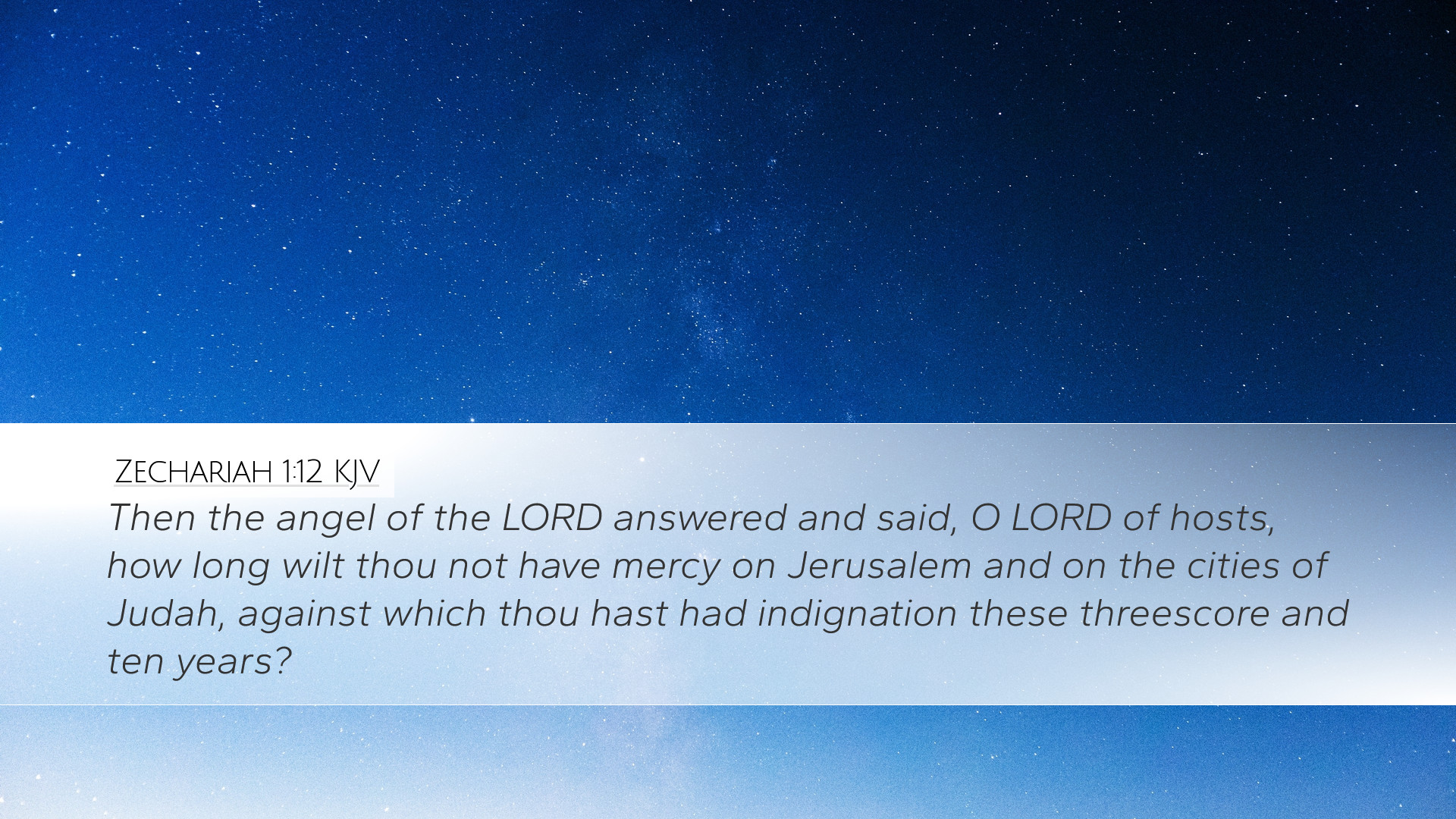Commentary on Zechariah 1:12
Verse Text: "Then the angel of the Lord answered and said, O Lord of hosts, how long wilt thou not have mercy on Jerusalem and on the cities of Judah, against which thou hast had indignation these threescore and ten years?" (Zechariah 1:12, KJV)
Introduction
The Book of Zechariah, often called a prophetic book, offers profound insights into the nature of God’s mercy and judgment. This specific verse captures a solemn moment where the angel of the Lord intercedes, expressing concerns over God’s delayed mercy towards Jerusalem and Judah. In the theological context of restoration and hope, this passage echoes the sentiments of God's persistent love amid widespread disobedience and suffering.
Historical Context
Upon returning from Babylonian exile, the children of Israel faced significant challenges in rebuilding their homeland. The verse reflects a time frame of seventy years, indicating not only God’s displeasure but also the prolonged suffering of His people. Matthew Henry points out that the seventy years symbolize a period of divine discipline for God's people.
The Significance of Seventy Years
- Divine Judgment: The seventy years is a representation of their exile, a punishment for their sins, as highlighted by Albert Barnes. It serves both as a historical marker and a profound reminder of the seriousness of divine judgment.
- Divine Patience: Adam Clarke comments on God’s patience during this period. It illustrates not just a time of punishment but also a space for repentance and eventual restoration.
The Character of God
In this verse, God's character is put on display through His mercy, patience, and willingness to forgive. The question posed in the verse, "how long," reflects the anticipation for God to act and fulfill His promises. This brings forth an essential discussion on the attributes of God.
Key Attributes Highlighted
- Mercy: The angel’s plea reveals God's inherent mercy, suggesting that God is not indifferent to the sufferings of His people.
- Justice: The term "indignation" underscores that God’s actions are just and based upon the actions of His people.
The Role of Intercession
The role of the angel of the Lord in this passage also illustrates the importance of intercessory prayer. Matthew Henry emphasizes that the angel is a mediator, encouraging believers to seek God’s mercy earnestly.
Implications for Believers
- Encouragement in Prayer: This verse encourages believers to be diligent in prayer, seeking God’s mercy for themselves and their communities.
- Recognition of God's Timing: Understanding that God’s timing may differ from human expectations is crucial for spiritual maturity.
Theological Reflections
This passage leads to significant theological reflections regarding the nature of prayer and the responsiveness of God. Adam Clarke makes a notable observation that the question of "how long" often arises in the hearts of believers amidst suffering and challenges.
Important Theological Questions
- How do we reconcile God’s justice with His mercy? Understanding the balance of these attributes is essential in theology.
- What does it mean to wait for God's mercy? This waiting period often tests faith and patience.
Conclusion
Zechariah 1:12 serves as a poignant reminder for pastors, theologians, and scholars about the nature of God, the importance of intercession, and the patience required in awaiting divine action. This verse encapsulates the struggles and hopes of a people longing for God's restoration after a long period of suffering. It urges a reflective examination of both God’s mercy and a believer’s response to divine discipline, calling for earnestness in prayer, attentiveness to God’s timing, and a deep trust in His character.


